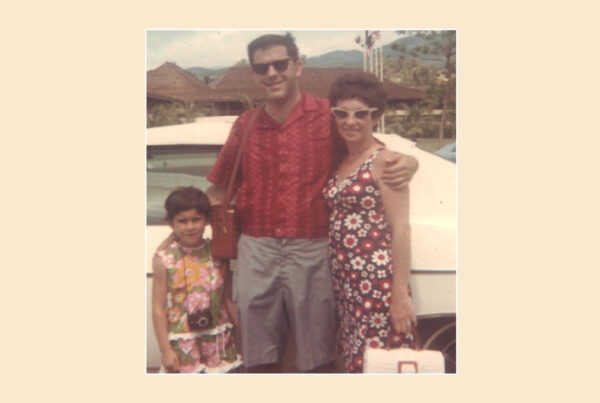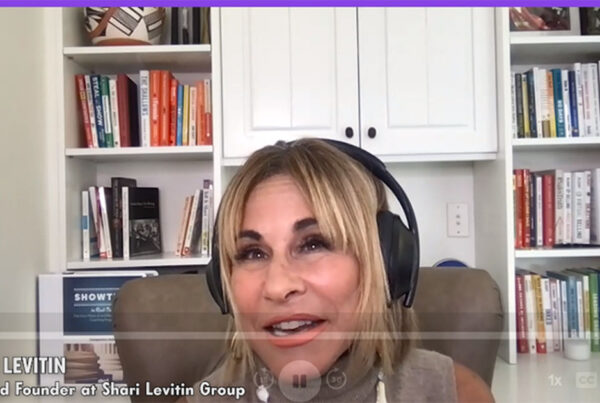When I was a little girl growing up in Southern California, my father saved up for several years to take my brother and me to Hawaii for my 12th birthday. Back in those days, we purchased airline tickets at the airport ticket counter. Of course, there was no Internet.
I clearly remember the sign above the counter:
HONOLULU
ADULTS: $350
CHILDREN: $175 (11 and under)
The man behind the kiosk looked down at me, then at my father and asked, “How old is your daughter?”
Without hesitation, my father replied, “She’s twelve.”
 I frantically tugged at my father’s shirt. No response. I cleared my throat in protest. My father glared down at me with a harsh “Shush.” I couldn’t believe it. I was born at 5:15 PM, so technically, I wasn’t yet 12. $175 was more money than I could imagine.
I frantically tugged at my father’s shirt. No response. I cleared my throat in protest. My father glared down at me with a harsh “Shush.” I couldn’t believe it. I was born at 5:15 PM, so technically, I wasn’t yet 12. $175 was more money than I could imagine.
As we made our way to the gate, my father bent over, looked down at me and said, “You will have many opportunities in life to bend the truth and then justify your behavior.” He paused. “There are two types of people in life. Those who are honest and those who aren’t. We are an honest family.”
When we have a non-negotiable in our lives, decisions are made easy. Sometimes, the non-negotiable’s are small: deciding to give annually to the policeman’s ball or vowing never to steal office supplies from your work.
Others are more consequential, like the decision to have fidelity in one’s marriage or to represent your boss or product in a particular unwavering manner. Top organizations and sellers set non-negotiables when it comes to ethics and morality.
It’s easy to say you won’t bend the truth when times are good or when you don’t need the money or when you’re on top of the pack, but how about when your spouse is sick or when the mortgage payment is overdue, or you’re on the verge of closing an important deal that will put you over goal?
What Are Your Non-Negotiables?
Years ago, a large hospitality company hired my team to build a comprehensive training program for over one hundred of their sales sites. The executives steered us to one of their top directors, Maria. Her team was outproducing all the others in the company, and it was easy to see why after meeting her.
It wasn’t just that she’s clever and a lifelong learner; she masterminded a system she referred to as “non-negotiables” – sales activities, best practices, and behaviors that every seller understood and was expected to follow “no matter what,” according to Maria. While some focused on sales activities, many focused on sales ethics.
It’s up to each one of us to decide what our values are and to create our non-negotiables accordingly. Know what you’re willing to say or not, so you’re not tempted to do otherwise no matter what’s going on in your personal world.
Here are some questions to get you started: Ask yourself, is it ok if I:
- Fabricate a price increase?
- Exaggerate product benefits just this once?
- Omit a product defect?
- Copy someone else’s work without attribution?
- Manufacture customer testimonials or white papers?
- Exaggerate close dates in my pipeline?
- Agree with my supervisor in public and bad-mouth her in private?
- Commit to a due date and fabricate an excuse as to why it’s not done instead of owning it?
- Blaming the SDR for lousy leads?
- Make money from a side hustle even though it’s against company policy?
There are no iron-clad laws here. Non-Negotiables are personal: they’re different for everyone.
Great sellers and sales leaders know that their devotion to their cause must be greater than their devotion to perks and privilege.
Ethical Selling Pays Dividends
Companies that fail to enforce non-negotiables and ethical sales practices ultimately pay the price in the form of negative publicity, penalties, and employee turnover. The good news? When you train and reward your sellers for doing the right thing, ethics pays for itself by providing buyers with a better customer experience.
Companies with higher ethical standards experience greater customer loyalty, satisfaction and referrals – all leading to greater profits.
Putting Sales Ethics Into Practice
When selling condominiums pre-construction in Vail, Colorado, I made a sale to a young family from Texas. I mistakenly told them they would have occupancy a year earlier than the building was slated for completion.
My boss informed me that the client called our reservation department, irate when he found out after purchasing $3,000 worth of airline tickets that his family had nowhere to stay that year. “It was an honest mistake,” I told my boss, “Can’t the company put him up in one of our finished units?”
“We’re all sold out… it’s the Christmas season,” he told me.
I knew I had no choice but to pay for like accommodations out of my pocket. After all, it was my error. I immediately phoned the client, admitted my mistake, and offered them a choice of three alternative properties. They picked one across the road. It cost me $3,200.
That year they brought their friends with them, the Walton’s from Texas. Both families had a glorious time and the Walton’s ended up purchasing their own share. I earned an additional $7,000 commission.
Of course, not all ethical stories have that happy ending. But I firmly believe that every act we perform in life ultimately shapes who we are.
To sell more, we must be more.
Thank you, Pop, for this valuable lesson and many more!





Shari, I enjoy your stories but this one particularly resonated with me. What a terrific tribute to your father’s integrity and his code of ethics. Thank you!
Priceless!
Thanks for sharing this.
Great timing with this lesson in ethics.
When times get tough it truly is important to hold on to principles that really matter and times are getting tough!
Very nice story that we can relate to and emulate. THANKS Shari!
fabulous!
(Not biased)
Mike and I just spent weeks with our therapist going through our relationship non-negotiables. It was hard at times, but we now have a clear understanding of what is supporting our success in partnership. I loved your article ❤